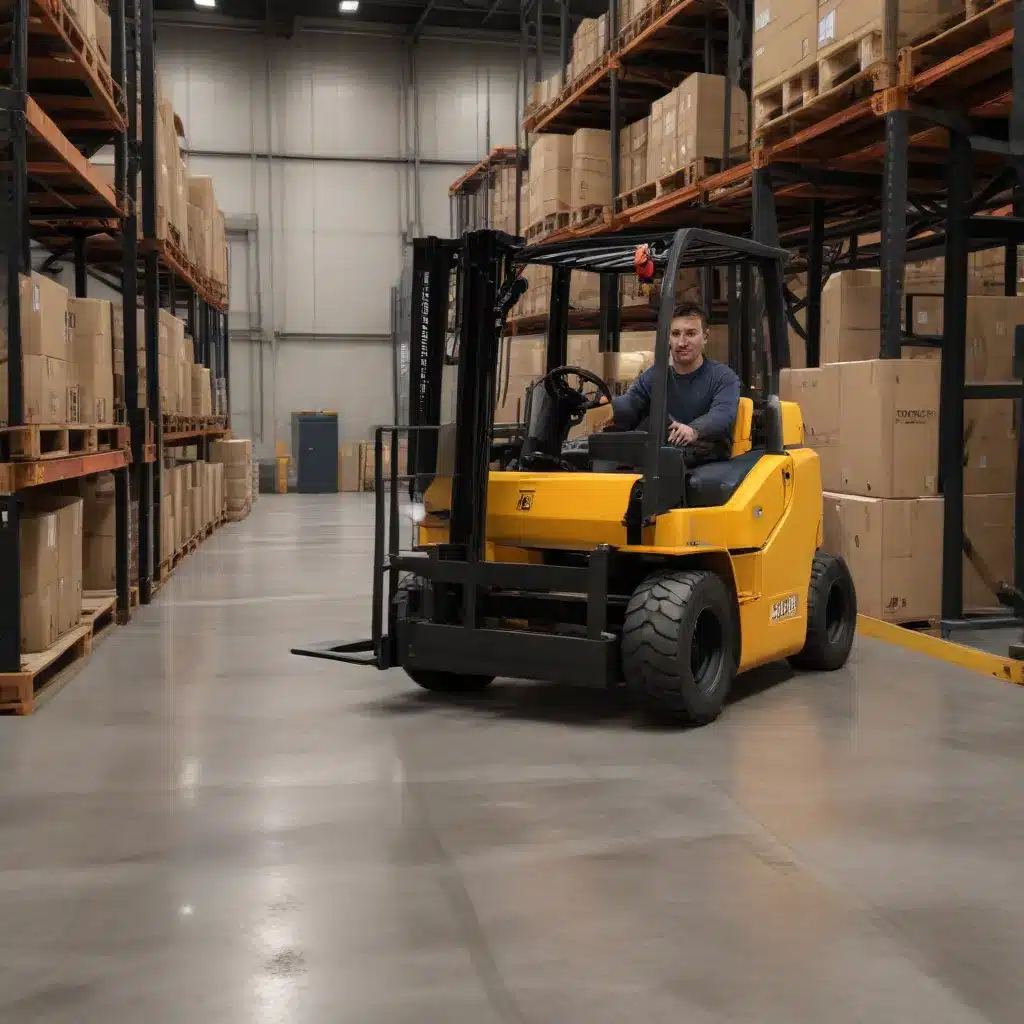
Embracing Virtual Reality and Gamification for Enhanced Forklift Training
The forklift industry has long faced the challenge of effectively training operators to ensure workplace safety and efficiency. However, with the rapid advancements in virtual reality (VR) and gamification technologies, the landscape of forklift training is undergoing a remarkable transformation. These innovative approaches are revolutionizing the way forklift operators hone their skills and develop critical safety awareness.
Immersive VR: Bridging the Gap Between Theory and Practice
Traditionally, forklift training has relied heavily on classroom instruction and limited hands-on experience. While this approach provides a foundation of knowledge, it often falls short in preparing trainees for the dynamic realities of the warehouse or logistics environment. Virtual reality, on the other hand, offers a groundbreaking solution by immersing operators in true-to-life forklift simulations.
By donning VR headsets, trainees can experience the sensation of operating a forklift in a completely safe and controlled virtual setting. These simulations replicate the weight, physics, and handling characteristics of real forklifts, allowing operators to practice maneuvering, loading, and unloading cargo without the risks associated with operating physical machinery. The immersive nature of VR enhances kinesthetic learning, enabling trainees to develop muscle memory and a deeper understanding of forklift dynamics.
Moreover, VR-based training platforms can present a diverse range of scenarios, from standard warehouse operations to emergency situations and equipment malfunctions. Trainees can explore these challenges in a risk-free environment, honing their problem-solving skills and building confidence in their ability to handle unexpected events. The immediate feedback and data-driven performance analysis provided by these systems further accelerate the learning process, allowing trainers to identify areas for improvement and tailor the training accordingly.
Gamification: Fostering Engagement and Motivation
Alongside the adoption of VR technology, the forklift industry is also embracing the power of gamification to enhance the training experience. By incorporating game-like elements into forklift training programs, operators are not only acquiring essential skills but also engaging in a more enjoyable and captivating learning process.
Gamified forklift simulators often feature realistic graphics, challenging scenarios, and rewards systems that tap into the intrinsic motivations of trainees. Through the thrill of competition, the satisfaction of completing objectives, and the sense of progress, operators are encouraged to explore, experiment, and learn in a stimulating environment. This approach helps to overcome the common perception of forklift training as a tedious or mundane task, particularly among the younger generation of potential operators.
Gamification also promotes active involvement and problem-solving, as trainees navigate through complex cargo handling situations and receive immediate feedback on their performance. By fostering a sense of ownership and agency, gamified training empowers operators to take an active role in their skill development, ultimately leading to better retention and application of forklift safety protocols.
Integrating Technology for Comprehensive Training
The integration of VR and gamification is not limited to the training experience itself. Technological advancements are also transforming the way forklift training is planned, delivered, and evaluated. E-learning platforms and mobile applications are emerging as valuable tools, offering flexibility and accessibility for operators to access training materials and engage in interactive learning at their convenience.
These digital training solutions often incorporate multimedia resources, such as instructional videos, interactive simulations, and quizzes, catering to diverse learning styles. Furthermore, the data collected from these platforms provides valuable insights into an operator’s performance, enabling trainers to tailor the training program to address individual strengths and weaknesses.
The integration of telematics systems, which monitor forklift operations in real-time, further enhances the training process. By tracking metrics such as speed, accuracy, and safety compliance, trainers can identify areas for improvement and provide targeted feedback to operators. This data-driven approach ensures that training remains relevant, efficient, and aligned with industry best practices.
Overcoming Challenges and Embracing the Future
While the adoption of VR and gamification in forklift training offers numerous benefits, it also presents unique challenges that industry stakeholders must address. The initial investment required to implement these technologies can be a barrier for some organizations, necessitating a careful cost-benefit analysis. Additionally, some operators may be resistant to the transition from traditional training methods, requiring a thoughtful change management approach to ensure smooth adoption.
Maintaining the quality and relevance of training content is another critical consideration. As the industry evolves, the virtual training environments and scenarios must be continuously updated to reflect the latest equipment, regulations, and best practices. Trainers themselves must also be equipped with the necessary skills to effectively deliver technology-enhanced training programs.
Despite these challenges, the forklift industry is poised to embrace the future of training. As VR headsets become more affordable and AI-powered personalization enhances the training experience, the widespread adoption of these innovative approaches is inevitable. Forklift operators will soon be able to hone their skills in immersive virtual environments, receive tailored feedback, and engage in gamified challenges that foster a deeper understanding of safety and efficiency.
Empowering Operators, Enhancing Safety
The integration of VR and gamification in forklift training is not only transforming the learning experience but also delivering tangible benefits to the industry as a whole. By providing a safe, controlled, and engaging platform for skill development, these technologies are empowering operators to become more proficient, confident, and safety-conscious.
As forklift operations continue to play a crucial role in warehouse, logistics, and supply chain management, the importance of well-trained and safety-focused operators cannot be overstated. The adoption of VR and gamification in forklift training is a strategic investment that not only improves operational efficiency but also safeguards the wellbeing of the workforce and the broader community.
In a future where technology and learning converge, the forklift industry is poised to reap the rewards of this innovative training approach. By embracing VR, gamification, and data-driven insights, forklift operators will be better equipped to navigate the dynamic challenges of their profession, contributing to a safer and more productive work environment.

